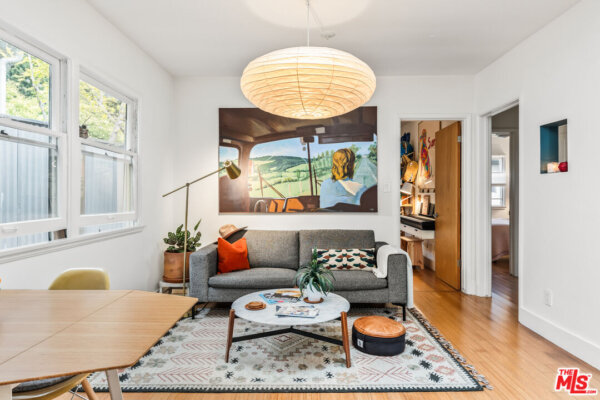Tips for Saving For a First Home Together

Saving up to buy your first house can be quite a daunting process. Thankfully, if you’re doing it with your partner, you can divide and conquer the stress together! Before you can begin, it is important to get a clear understanding of your current finances so you can determine what type of property you can afford and at what rate you need to save to meet your goal. We’ve compiled the best money-saving tips for your first home below:
Communicate your Finances Clearly
Before you can start saving to buy your first house with a partner, it is crucial to sit down and talk about your finances. Discuss every detail, such as whether you have enough money currently to make a down payment on the type of home you want, and if not, how long you think it will take to get there. Communicate transparently with your significant other about your current savings, future savings goals, debts, spending habits and budgeting.
Create a Budget
Making a budget is one of the most important things you can do to save money efficiently. Not only does a budget help you see how much you are spending in various areas and where you need to cut back, but it also confirms how much you can put towards savings. After figuring out how much money you have remaining after deducting all your expenses, you can set up an automatic payment to your savings account.
When creating a budget, try the 50/30/20 rule as a simple framework. This is where you:
- Allocate around 50% of your income for needs, such as rent, utility bills, food, transportation, etc.
- Leave 30% of your income for wants, such as dining out, shopping, indulging in luxurious experiences, etc.
- Save 20% of your income for future purchases, debt repayment, or unexpected expenses.
- Monitor and manage your budget periodically to ensure you’re on the right track.
Saving for a house may require you to save more than 20%. If you plan to buy a house within a year, both you and your partner could allot 30% or more to savings. The exact percentage you dedicate to savings will largely depend on your current income, how quickly you want to buy the house, and how much your estimated down payment would be.
It is important to set a realistic budget so you don’t fall off the wagon and save very little to nothing. Pick a few things each month that you will not feel too guilty about spending on – such as a movie night, a spa day, or a dinner date – and enjoy them!
Know the Costs Involved
Understanding how big of an initial deposit or down payment you’ll need is one of the first steps towards saving for a house. Estimating how much you will need for a down payment and any other initial home-buying costs will give you an initial figure to work with for your overall home buying budget. Contact a local real estate agent and look at home prices online to understand what the houses you like would cost, and thus how much you will need upfront.
The typical down payment value is 20% of the total home value. This means that for an $800,000 property, you will need to put $160,000 down. If the deposit amount seems too high based on the budget you have in mind, don’t be discouraged: fortunately, many low-deposit home options are available that only require down payments of 10% or even less. Do your homework and see which neighborhoods offer the most competitive prices.
Pay off Existing Debt
First-time home buyers face many stressors and challenges, but paying off debt is one thing you and your partner can take action on. Debt payments can eat up a good chunk of your income, leaving you with little room to create real savings. Here are some tips to pay off your debt faster so you can start saving for your new house:
- Pay more than the minimum amount required
- Pay multiple times a month
- Start paying your most expensive loans first to save on monthly interest payments
- Consolidate multiple debts into one to lower the overall interest costs
- Stop using your credit cards
- Aim to reduce your monthly spending, especially on wants and luxuries
- Set a specific date to pay off your loan. Different online calculators can tell you precisely how many months you need until you can be clear of debt. If 15 months sound like a big deal, increase your monthly payment by as little as $50 or $100 and notice the difference.
Get a Savings Account with a Rate
Some savings accounts have a higher interest rate than others. Review different banks and their policies and see which can reward you with a more competitive return rate.
Final Thoughts
Decide how much of the home cost you can comfortably fund. Open conversations and honesty will help you prepare for the endeavor of finding and making an offer on a house ahead. Money is normally the main cause of ugly fights and misunderstandings in relationships, which is why communication is key.
Both you and your partner will likely have a different view on how to spend and how much to save. If either of you has poor spending habits, saving for your first house together may require extra time.
The decision to buy a house requires a lot of planning, compromise, and sacrifices. Remember to openly discuss your finances and savings goals first, then use the tips mentioned above to achieve those goals more efficiently. It is normal to hit some bumps in the road, but the key is to stay persistent and focused on the result – your new home.


